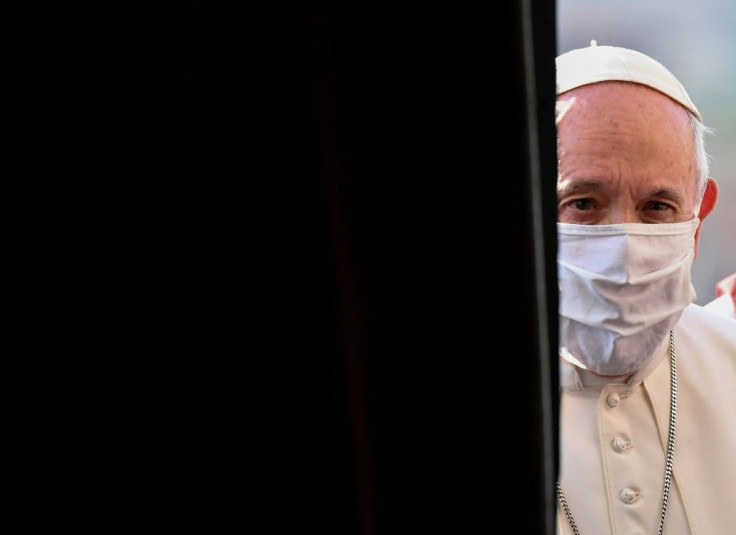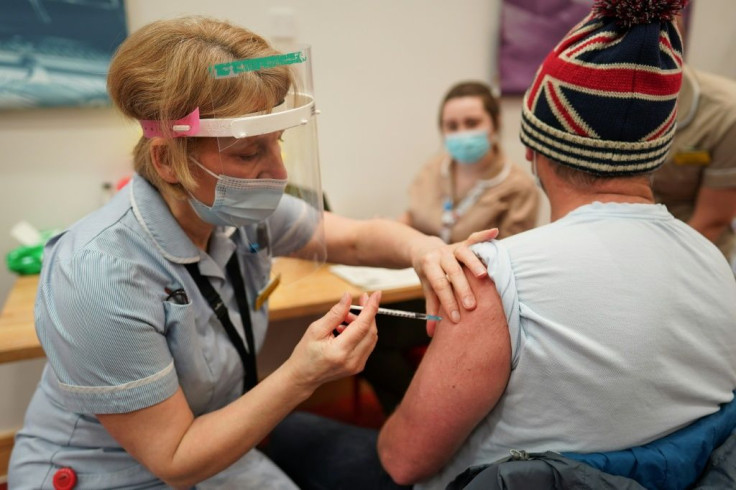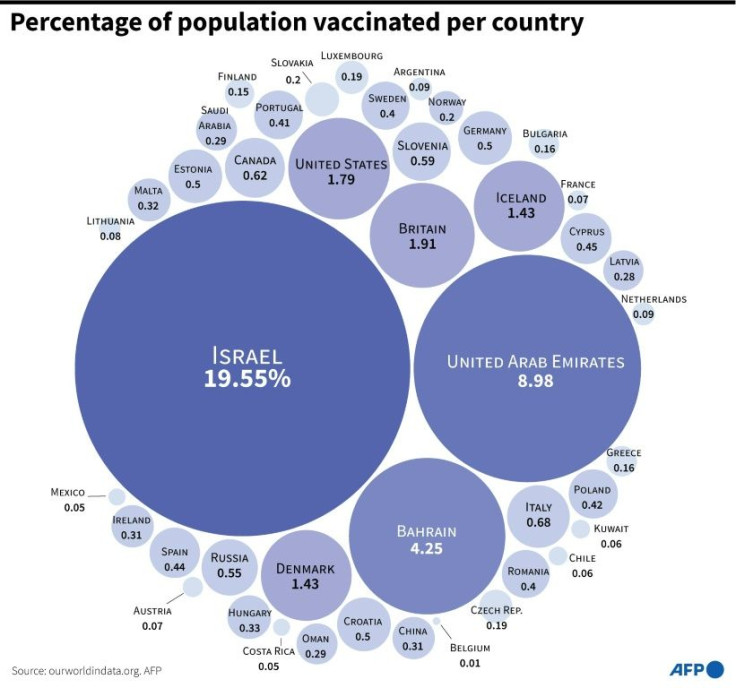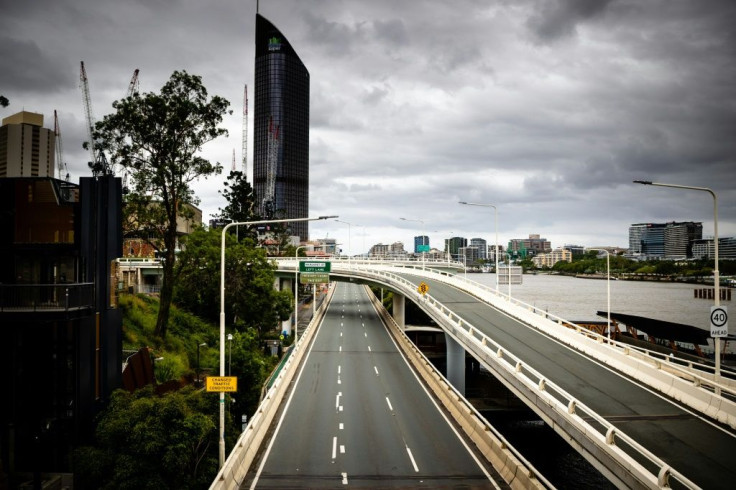WHO To Probe Virus Origins In China As Nations Struggle With Surges
A World Health Organization team will finally reach China this week to start probing the origins of the coronavirus, more than a year after the pandemic began and following accusations Beijing tried to block the investigation.
Infection numbers surged across Europe, with Germany warning of the "hardest" days ahead as Britain raced to vaccinate as many people as possible to contain a virus that has infected close to 90 million people worldwide and killed nearly two million.

The human and economic toll of the pandemic has caused anger and frustration worldwide, giving even greater political significance to the WHO's long-awaited investigation mission to China.
The 10-member WHO team will arrive Thursday and "conduct joint research cooperation on the origins of Covid-19 with Chinese scientists", Beijing's National Health Commission said in a statement that provided no further details.
Beijing has faced international criticism over its lack of transparency during the early days of the pandemic. The United States and Australia have led international calls for an independent inquiry, enraging China.

The announcement of the WHO team's arrival came on the anniversary of the first death confirmed by China in the central city of Wuhan, where a wet market was identified as the first major outbreak of the disease that then spread around the world.
The anniversary of the first reported death passed by unmarked on Monday in Wuhan, where commuters move freely to work, and parks and riverside promenades buzz with visitors.
"Wuhan is the safest city in China now, even the whole world," 66-year-old resident Xiong Liansheng told AFP.


The recovery of Wuhan is in sharp contrast to the many parts of the world where the pandemic is still raging, fuelled by new variants that are prompting governments from Israel to Australia to reimpose restrictions, including lockdowns and even curfews.
The surges in Europe and North America have hit even as Covid-19 vaccines were approved and rolled out in record time.
Virus deaths in Germany crossed 40,000 on Sunday, with Chancellor Angela Merkel warning that the country had yet to feel the full impact of socialising over Christmas and New Year period.

The coming weeks will be "the hardest phase of the pandemic" so far, Merkel said, with hospitals stretched to their limits.
Hospitals in Britain, which has one of the highest death tolls in Europe, were also close to being overwhelmed, and the surge in cases forced the government to reinforce its campaign to get people to abide by stay-at-home orders.
UK health authorities are rushing to give shots as many people as possible to meet a target of 15 million vaccinations among the most vulnerable by mid-February.
The surge in Mexico, which the fourth-highest death toll in the world, has left hospitals in a "critical" state, with paramedics struggling to even find beds for patients.
"For there to be room, one person has to be discharged or die," said Angel Zuniga, a Red Cross coordinator in the city of Toluca.
"It's tough but it's the truth."
Pope Francis and Britain's Queen Elizabeth II became the latest high-profile figures over the weekend to join the global vaccination campaign as officials try to overcome scepticism over jabs developed in record time.
"There is a suicidal denial which I cannot explain, but today we have to get vaccinated," the Pope said Sunday, denouncing opposition to shots.
While wealthier nations in Europe and North America have already started their vaccination drives, India -- with the world's second-biggest virus caseload -- will begin giving shots to its 1.3 billion people from Saturday in a colossal and complex undertaking.
"I look forward to getting the vaccine and living without fear and the mask all the time," migrant worker Shatrughan Sharma, 43, told AFP.
"The last year was very tough for us."
© Copyright AFP 2024. All rights reserved.





















